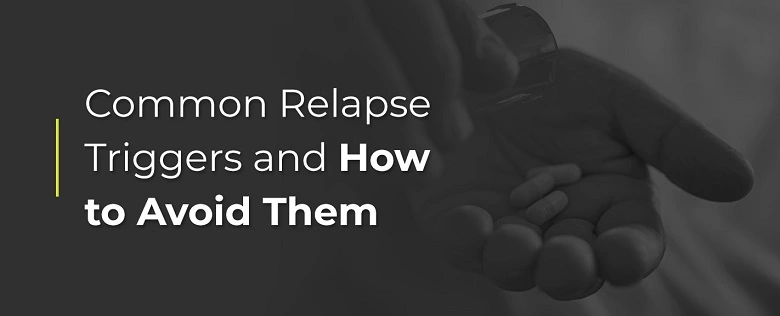It is a relatively common occurrence for people struggling or recovering from addiction to relapse. For this reason, an estimate of two-third of recovering individuals tends to relapse during addiction treatment or after they are done. Some even fall off the wagon many times before committing to sobriety properly. However, every relapse makes recovery harder each time. For this reason, it is imperative to understand your trigger points so that you can prevent relapse. Having a plan about dealing with these triggers will help you stay in control and avoid relapse. Therefore, we will discuss some common relapse triggers and ways to void them.
Common Relapse Triggers and How You Can Avoid Them
Stress
Stress is one of the leading causes of relapse. When a person struggling with addiction or recovering experiences stress, their first instinct is to revert to the old and familiar habits of doing drugs. Substance use becomes their maladaptive coping mechanism, and this spirals even more as stress increases their want for addictive substances.
Avoiding stress completely is difficult for a person who is undergoing treatment. The reason is that even if they have no exposure to external stress factors, the treatment in itself is a very stressful process. The reason is that rehabilitation is a tough, painful, and stressful procedure. As the body detoxifies itself, you may experience extreme jousts of pain.
Thus, the ideal solution is to try and eliminate all the external stress factors in your life. For this purpose, you can choose to rehabilitate in a well-reputed drug rehabilitation facility, such as Delphi Health Group. However, if this is not a viable option, you must avoid places, people, things, and situations that cause such effects. Moreover, consult with an addiction counselor to find a healthy coping mechanism that works well for you. You can learn to be more mindful, do relaxation exercises, and increase healthy habits on a personal level.
People or places associated with addictive behavior
People who encouraged substance use or participated in such activities that led to addictive behavior can become a reason for relapse. It doesn’t matter if they have quit the addictive practices themselves; their presence is enough of a trigger to cause a relapse. The reason is that their presence acts as a constant reminder about your addictive behavior in the past, and it can urge you to relapse.
However, there will be places and people whom you can’t avoid even if they remind you of your addictive behavior. You must have a healthy and effective strategy to handle your feelings in such a case. For example, if your colleagues invite you to go drinking with them, have an excuse ready so you can get out of the situation safely. Instead of that, partake in healthy sports and activities or distract yourself through entertainment. You can either hit the gym, watch a movie, or read a book.
Negative emotions
People often use alcohol and drugs to deal with their negative emotions. They view these substances as a means to manage and tolerate their negative and depressive feelings. However, you must realize that drugs only provide temporary relief and has many consequences in the end. Therefore, you can’t rely on drugs and other substances to deal with your negative emotions. Instead, aim to understand the root cause of these negative emotions and find ways to heal yourself instead. For this reason, you can opt for therapy or counseling and try to find healthy ways to deal with these emotions. You can also try meditation or journaling to release all the negative thoughts in your mind and gain perspective.
Seeing or sensing objects of your addiction
A reminder of things and feelings you had during your addiction can be a major trigger for relapse. For example, if you are recovering from a smoking addiction, seeing someone smoke or catching a whiff of the smoke can urge you to smoke.
You have to realize that wanting to fall back into old patterns is normal. It is a familiar place for you, and oftentimes, familiarity triumphs over sane reasoning. However, recovery isn’t just about quitting drugs and abstaining from them completely. It is about making them undesirable and helping you build a life that is easier and doesn’t encourage substance dependency.
Therefore, focus on building a new life for yourself and making healthy changes in your life. Think about all the negative experiences of your past that pushed you into those toxic habits and the setbacks and consequences of your addiction. Then try to gain back the good things and people you lost during the dark times in your life.
You can also look into having a substitute activity that is beneficial for your body at the same time. For example, taking long warm baths or yoga whenever you feel triggered can help you cope.
Conclusion
Addiction recovery is as much about your mental healing as it is about your body’s recovery. The aim is to flush out the toxins from your body and negativity from your mind. Therefore, try to maintain a healthy and positive lifestyle after recovery so that you don’t experience a relapse again. Remember that your dark past is something to learn from instead of spending a lifetime regretting your actions.
